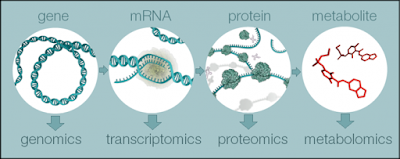Postgraduate Seminar Speakers 28th July 2016
1pm -
Zoology Museum (Wallace 129)
S P E A K E
R 1
Neither phytoplankton nor zooplankton: welcome to the
mixotrophic world of marine plankton
Suzana G.
Leles
Mixotrophy among marine
protists (i.e., the combination of autotrophy and heterotrophy in a single
cell) is not a new discovery but it was poorly investigated until 1980s.
However, in reality, most protist plankton are neither strict non-phagotroph
nor strict non-phototroph, but mixotrophs. This talk will focus on acquired
phototrophy and will discuss the spatial and temporal distribution of these
mixotrophs, highlighting the implications of not considering such complex
nutrition within marine ecosystem models.
S P E A K E
R 2
Metabolite profiling of a robust cyanobacteria
for industrial biotechnology
Bethan Kultschar
Cyanobacteria (blue-green algae) are photosynthetic
prokaryotes; they produce an array of secondary metabolites which can be
exploited as a sustainable source of useful compounds in industry. These
metabolites can be monitored during growth and under different stress
conditions using metabolomics. This utilises a variety of high resolution
analytical techniques such as GC-MS, LC-MS, MALDI, HPLC and NMR to visualise
these changes and to aid in the characterisation of the metabolome using online
databases.
S P E A K E
R 3
Temporary defences induced by
Daphnia magna (Cladocera) in two green algae: Scenedesmus sp. and Chlorella sp.
Dania Albini
The ability to defend against grazers is a main driving
force in phytoplankton evolutionary histories. This leads to trade-offs with
other life-history traits, modifying eco-evolutionary dynamics. One well-known
example is the chlorophyte Scenedesmus sp., which forms colonies when being
grazed by the predator Daphnia. This morphological change allows Scenedesmus to
increase its effective size to beyond the handling capacity of the grazers and
thereby reduces its grazing mortality. The project involve the use of
microcosms and modelling approaches to study inducible defence of green algae
against grazers at the population and community levels, and metabolomics to
characterise the chemical nature of the interactions and physiological changes
in the organisms.



No comments:
Post a Comment